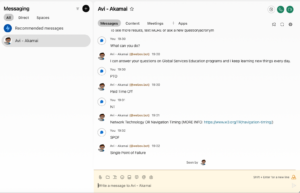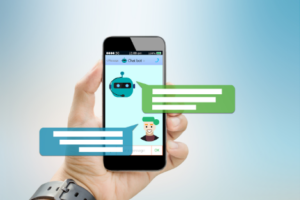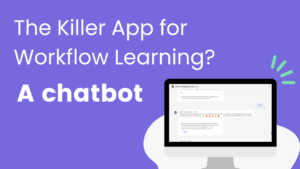We invite experts and professionals in the learning and development industry to discuss various topics each month, such as learning systems, gamification and learning, leadership development strategies, and more.
This month’s discussion topic:
When you contract with content companies to develop workshops and classes, what kinds of things do you look for in an ideal content partner?
(Also, you can click here to contribute as a future panelist!)
Our featured panelists:
- Matt Ohrt, HR Director, People and Culture at Ariens Company
- Laurie Sampson, Senior Training Consultant at Nelnet
- Cheryl Ramirez, Manager of Talent Management at Continental Resources
 Matt Ohrt
Matt Ohrt
HR Director of People and Culture at Ariens Company
Strengths of Internal Training
“The first question, of course, is whether development training is happening at all. It needs to happen – regularly and continuously. People want development. It is a natural, healthy motivation. If people are not afforded opportunities to grow, even if just for their current position, they will find an organization that does.
I believe there is benefit, on occasion, to bring in topical experts and inspirational speakers. When this is done, it is imperative the speaker’s philosophy is consistent with that of the organization. These interventions keep things fresh and inspire positive change. They help prevent an organization from getting stuck inside their own bubble.
I believe the majority of developmental workshops and training classes, however, should be done internally. Depending on the size of the organization, it can be one person leading these efforts, or it can be a team of people. Let me explain why I believe this. Jim Collins research, as published in the book “Good to Great”, seems to reveal two themes that are shared by organizations that have prospered for the long-term.
- First, these organizations understand culture; meaning they are very particular and care deeply about how things are done. Specifically, they have cultures that foster responsibility and personal job freedom.
- Second, everyone in the organization needs to understand how their work connects with a higher purpose. This is necessary for everyone to remain motivated and committed to success for the long-term.
In summary, if we do not understand the importance of a consistent and positive culture, and we do not make sure everyone’s actions align, things become fragmented, there is no “common way”, and confusion is often the result. By leading development internally, proper alignment can be achieved, purpose can be clearly connected, and everyone’s individual development can be better supported.”
Contact Matt Ohrt: LinkedIn
 Laurie Sampson
Laurie Sampson
Senior Training Consultant at Nelnet
Designs for Various Learning Styles
“An ideal content partner is one who listens to our needs and takes time to understand our business. This partner asks questions to identify our learning objectives and doesn’t forget that we are the customer; not everything they have to offer is of value to us, nor does it satisfy our goals. An ideal partner also has multiple ways to deliver the content, i.e. instructor-led, or asynchronous e-learning and has tools to help us solidify the learning transfer after the training event.
When we develop our own content, we partner with a sponsoring manager or department to determine their needs and learning outcomes. We work to incorporate a variety of learning methods to satisfy all of the learning styles and mix up the delivery at least every 15 minutes (if not more). We then consider ways to enable the learning transfer back on the job and establish coaching partnerships between the learners and their leaders. This gives the leaders an opportunity to be intimately involved with their direct reports’ learning and progress.”
Contact Laurie Sampson: LinkedIn
 Cheryl Ramirez
Cheryl Ramirez
Manager of Talent Management at Continental Resources
Willing to Challenge Ideas
“I want to partner with people who understand the learning process and are willing to challenge my ideas and let me challenge yours; together we can create something that is a match for the organization. I need to know that you have my back when I leave the room. What I mean by that is I believe there is a certain level of listening lost for my expertise when I become an internal subject matter expert in the organization. Externals are listened to differently – as having more knowledge and expertise. I am a proponent of the internal-external partnership when it comes to creating useful and engaging content material and delivery.
Other things I look for include:
- a true partner, not selling a product but collaborating for results
- open to change and flexible
- makes suggestions and is creative
- reads the audience
- responds to the audience needs with questions and opportunities
- loves what he or she does
- keeps the themes moving forward
- stays focused on topic
- always learning themselves
- understands adult learning theory”
Contact Cheryl Ramirez: LinkedIn
Share your expertise!
Sign up now to be future panelist and you will:
- Be featured alongside our other panelists, including New York Times best selling authors, Fortune 500 executives, and other industry leaders
- Share your expertise with 13,000+ L+D professionals who will see your name and links to your blog, website, LinkedIn, etc



